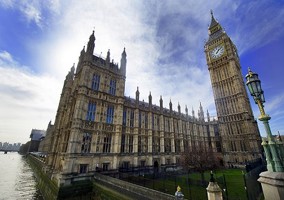There is an “undue burden” placed on trustees by the volume and tone of Charity Commission guidance, according to members of the Charity Law Association (CLA).
The CLA is a professional body for lawyers and advisers to the charity sector, and has submitted written evidence to the Digital, Culture, Media and Sport (DCMS) Committee's inquiry on the Charity Commission, which was published earlier this month.
It says: “We are concerned that the volume and tone of the material that trustees are currently expected to read, know and apply places an undue burden on volunteer trustees and may discourage individuals from becoming or continuing as trustees.”
The submission says that it reflects views expressed by individual members of its executive committee, rather than the executive committee or the CLA as whole.
Tone of material might deter trustees
CLA members are concerned at the volume and tone of the material that trustees are expected to read.
It adds: “We are concerned that, in practice, it is unrealistic to expect volunteer trustees to be mindful or even aware of all of the Charity Commission’s guidance documents.”
The submission says that there is an undue burden on volunteer trustees which may discourage individuals from becoming or continuing as trustees.
“We believe it is an important function for the Commission to promote engagement with the charity sector as a rewarding and beneficial opportunity,” it states.
It adds that the Commission should use “permissive language” rather than setting out prescriptive rules, and that the Commission’s guidance should recognise that what is good practice for larger charities should not necessarily be expected of smaller ones.
Focus on public expectation
The submission criticises the Commission for its focus on “public expectations”.
“We do not consider this approach is helpful, or correct,” it states.
It adds that “public expectations” are something which is not susceptible to any clear definition and are necessarily changeable.
Statements that say charities should be “distinct from other organisations in their attitude and behaviour, in their motivations and methods” do not help charity trustees to comply with their duties, the evidence states.
“Nor do we believe they help the public in having a realistic understanding of what charities do and the framework within which they operate, or the regulator’s role in that,” it concludes.
‘Pronounced lack of resources’
One other key point made to the DCMS Committee was that the Commission is currently underfunded, and that this needs to be rectified, particularly during these times of unprecedented challenge to the sector.
The evidence suggests that Commission staff provide invaluable services to help new and existing charities, but that “a pronounced lack of resources” has continued to have a substantial impact on its legal work with charities.
For example, the Commission often takes several months for a case officer to be allocated to a charity registration application, and there are often “very lengthy turnaround times for straightforward consents and orders, exacerbated by the lack of direct access to case officers”.
Charities Bill
In its own evidence to the committee, the Commission suggested the government bring forward a draft Charities Bill, and the CLA's submission backs this call.
A 2017 Law Commission report on Technical Issues in Charity Law made 43 recommendations that it estimated would result in £27.76m in savings for the charity sector.
The government has not yet responded to the Law Commission's report or found legislative time to introduce a new Charities Bill implementing its recommendations.
The submission says: “We support the Charity Commission and the Law Commission in continuing to advocate for the implementation of those recommendations at the earliest opportunity.”
Regulation and risk
The evidence points out that “the word ‘risk’ is used extensively in Charity Commission guidance”.
It argues that given the unprecedented challenge faced by the charity sector, it is essential that charities are able to innovate, and that responsible risk-taking is not deterred.
It adds that although there are useful lessons to be learned from the Commission's reporting on its regulatory interventions, “there is concern that inquiry outcome reports can appear to set unachievable standards of perfection for trustees”.
The regulator does not always recognise the practical challenges that the trustees may have faced at the time, “nor explain what could have been done differently to achieve a different result”.
“The most serious findings of the Save the Children inquiry report appear to run contradictory to published Charity Commission guidance, without distinguishing why, which gives rise to mixed messages for trustees,” the submission says.
In the Commission's evidence to the Committee, it highlighted an increase in its workload, but said it has been making progress to be more responsive to charities that contact it. It also refuted accusations that its public statements were damaging to the sector.
Related articles












